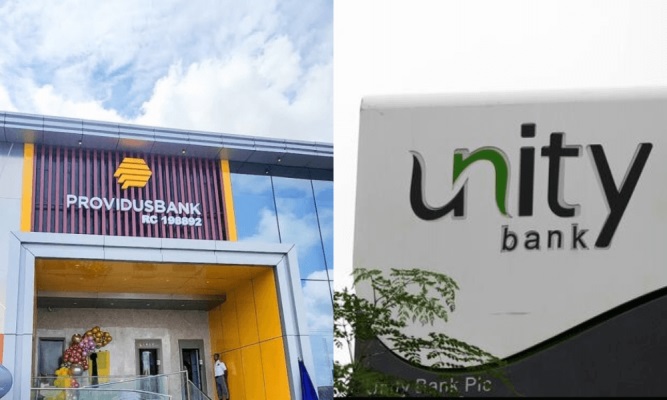Shareholders of Unity Bank Plc have overwhelmingly approved a proposed merger with Providus Bank Limited, a deal regulators say will reinforce stability in Nigeria’s financial sector.
At a court-sanctioned Extraordinary General Meeting held on 26 September, 293 Unity Bank shareholders, representing 99.32 per cent of total shareholding worth ₦4.4 billion, voted in favour of the plan. Only two shareholders opposed the resolutions.
Under the terms of the agreement, investors may opt to receive ₦3.18 for every Unity Bank share held or exchange 17 Unity Bank shares for 18 in Providus Bank. Once completed, the merged entity will operate as Providus-Unity Bank (PUB).
Unity Bank Chairman, Hafiz Bashir, hailed the approval as a turning point. “By joining forces with Providus Bank, we are creating a stronger, more competitive, and more resilient institution that will deliver long-term value to our customers, shareholders and the Nigerian economy,” he said.
The Central Bank of Nigeria (CBN) gave its approval in August 2024, granting financial support to facilitate the merger and cover Unity Bank’s outstanding obligations. The CBN described the intervention as consistent with Section 42(2) of the CBN Act 2007 and essential for preventing systemic risks in the banking industry.
Hakama Sadi-Ali, Acting Director of Corporate Communications at the CBN, explained: “This arrangement is crucial for the financial health and operational stability of the post-merger organisation.”
Despite strong institutional backing, customers are urging the banks to address practical service challenges. Unity Bank account holder Mansur Abba expressed hope the consolidation would raise service standards, while fellow customer Betty Ononye pressed for wider branch and ATM access. Providus Bank client Adewale Akintola encouraged the new entity to focus on customer satisfaction and support for small businesses.
If successfully executed, analysts say the merger could mark one of the most significant consolidations in Nigeria’s banking landscape in recent years, potentially reshaping competition in retail and corporate banking.





